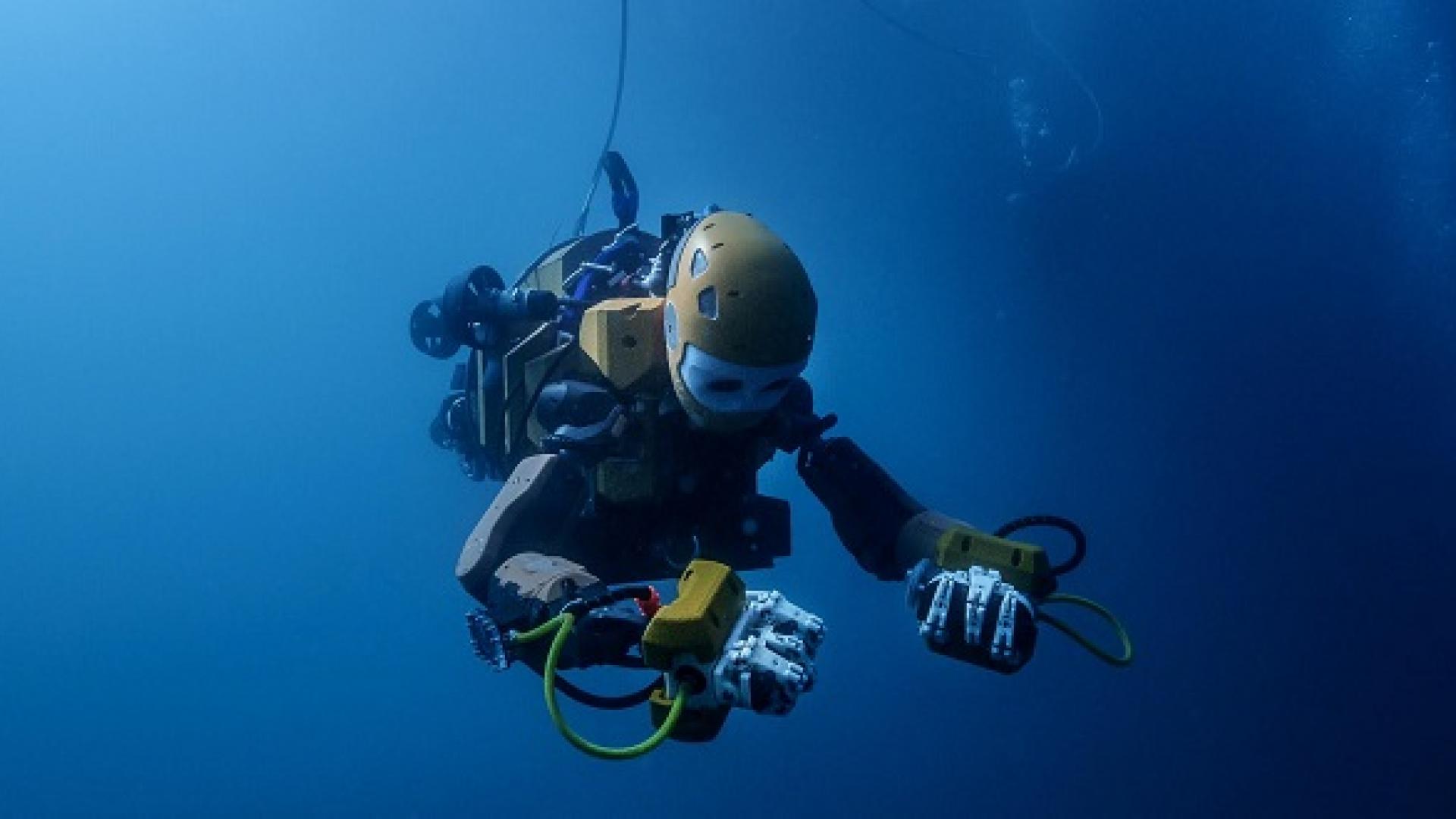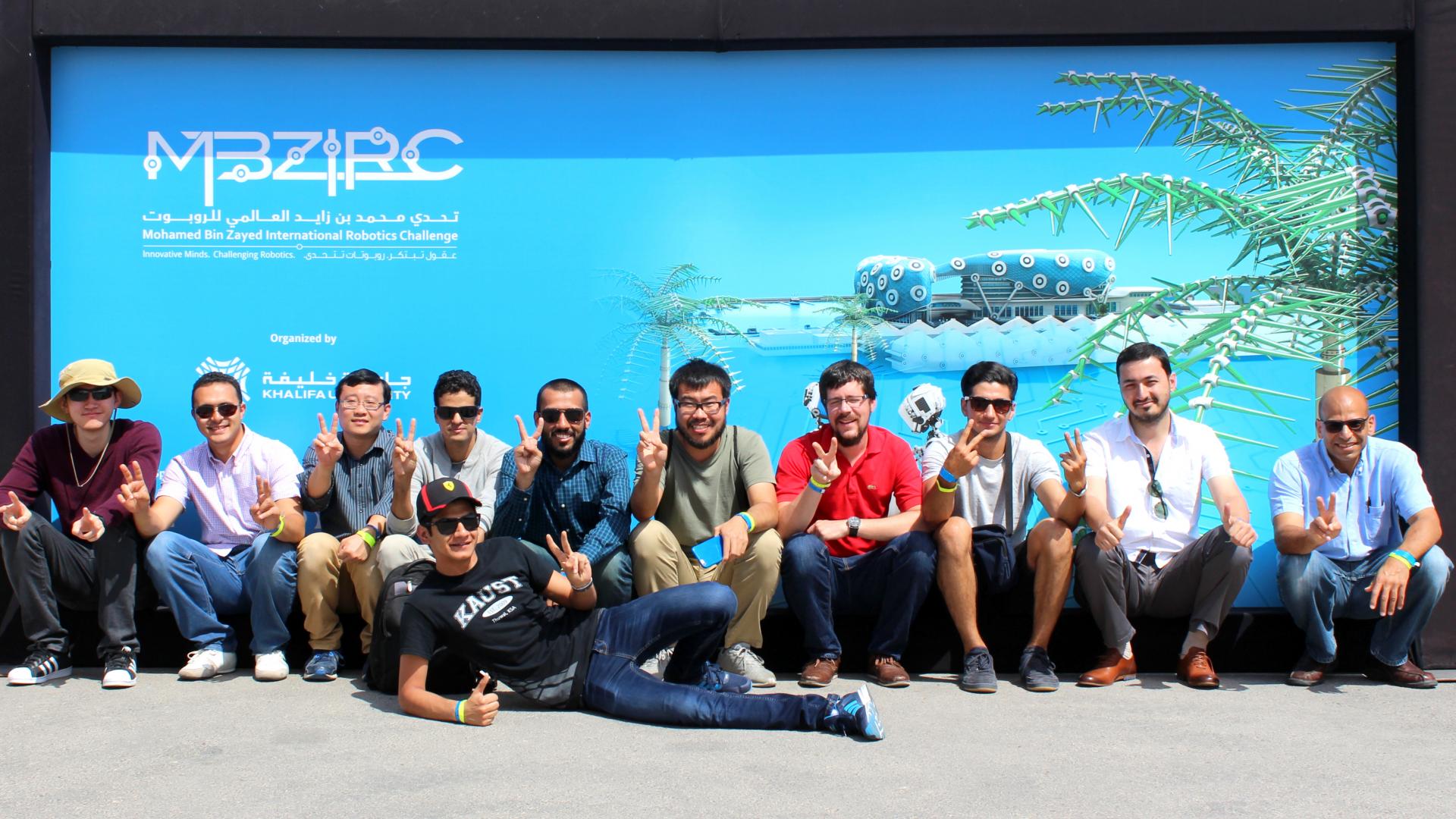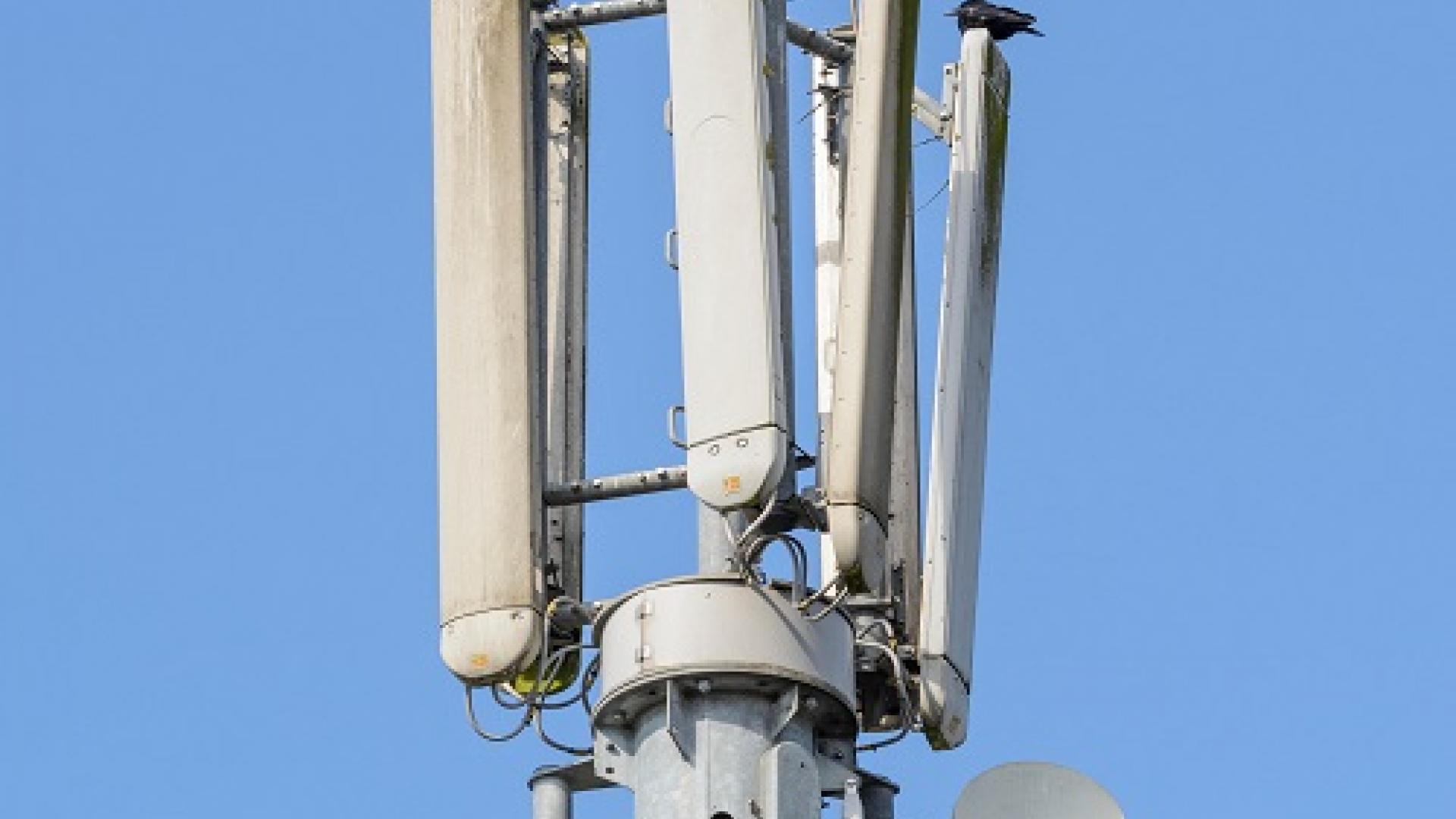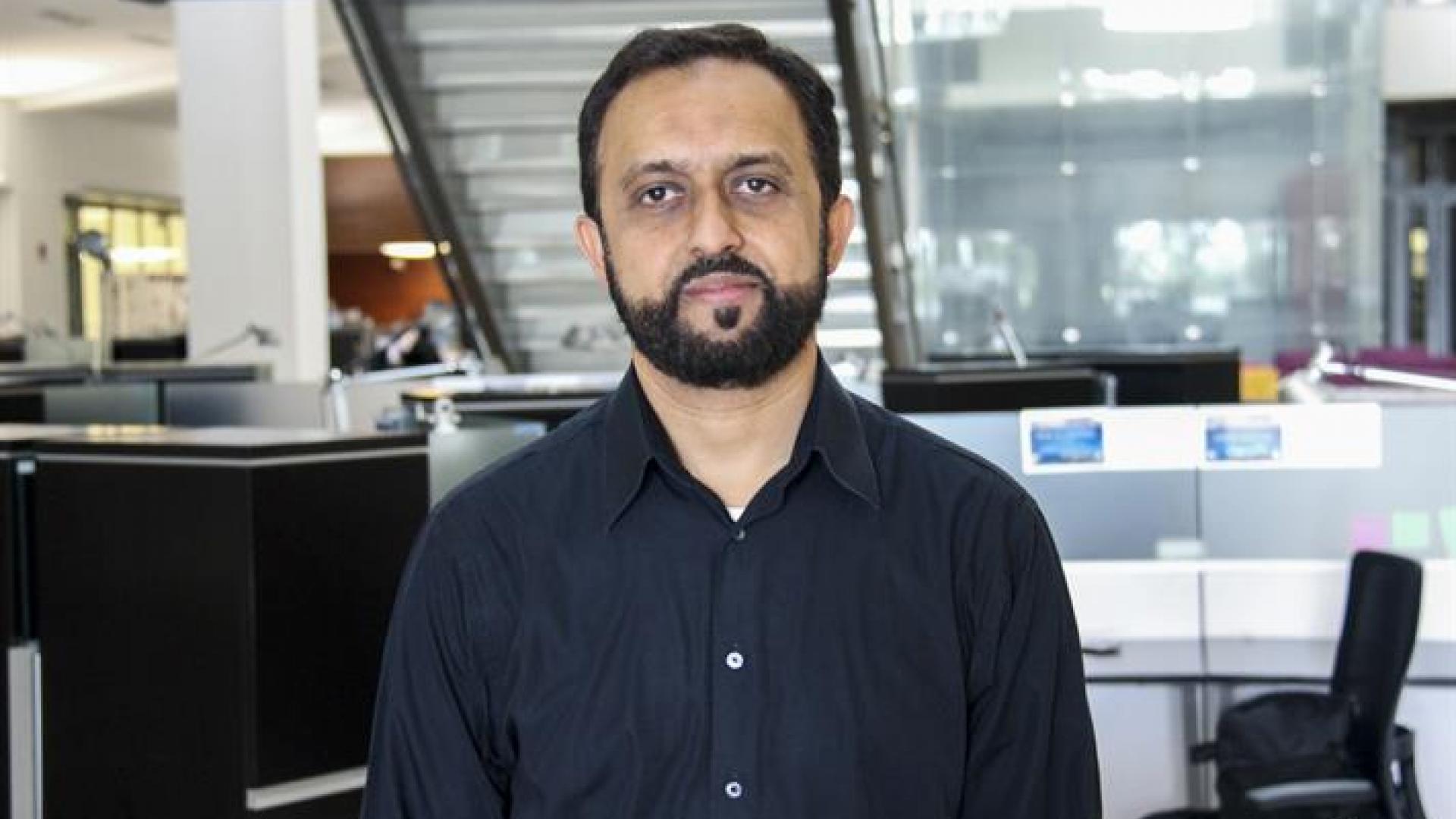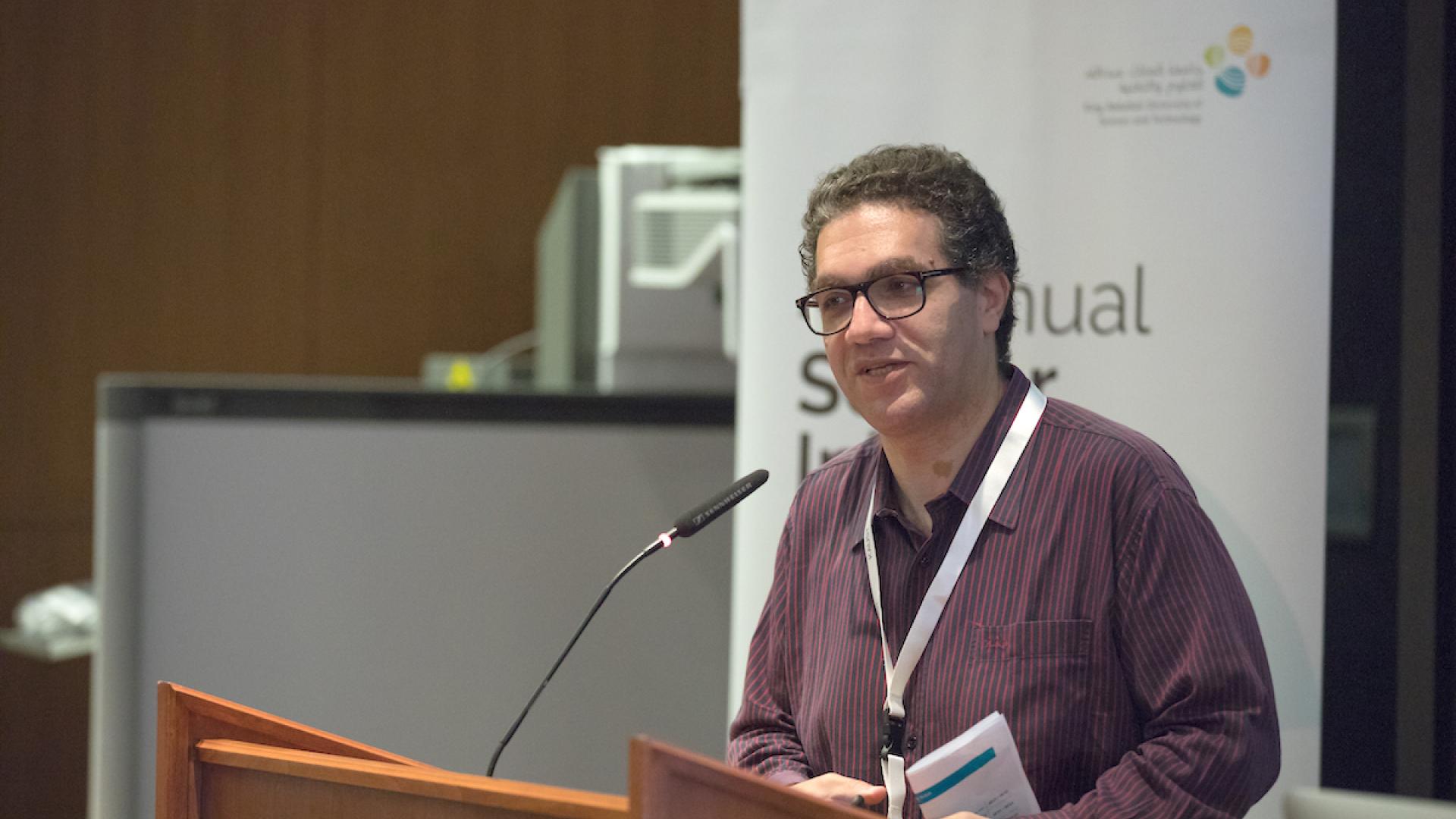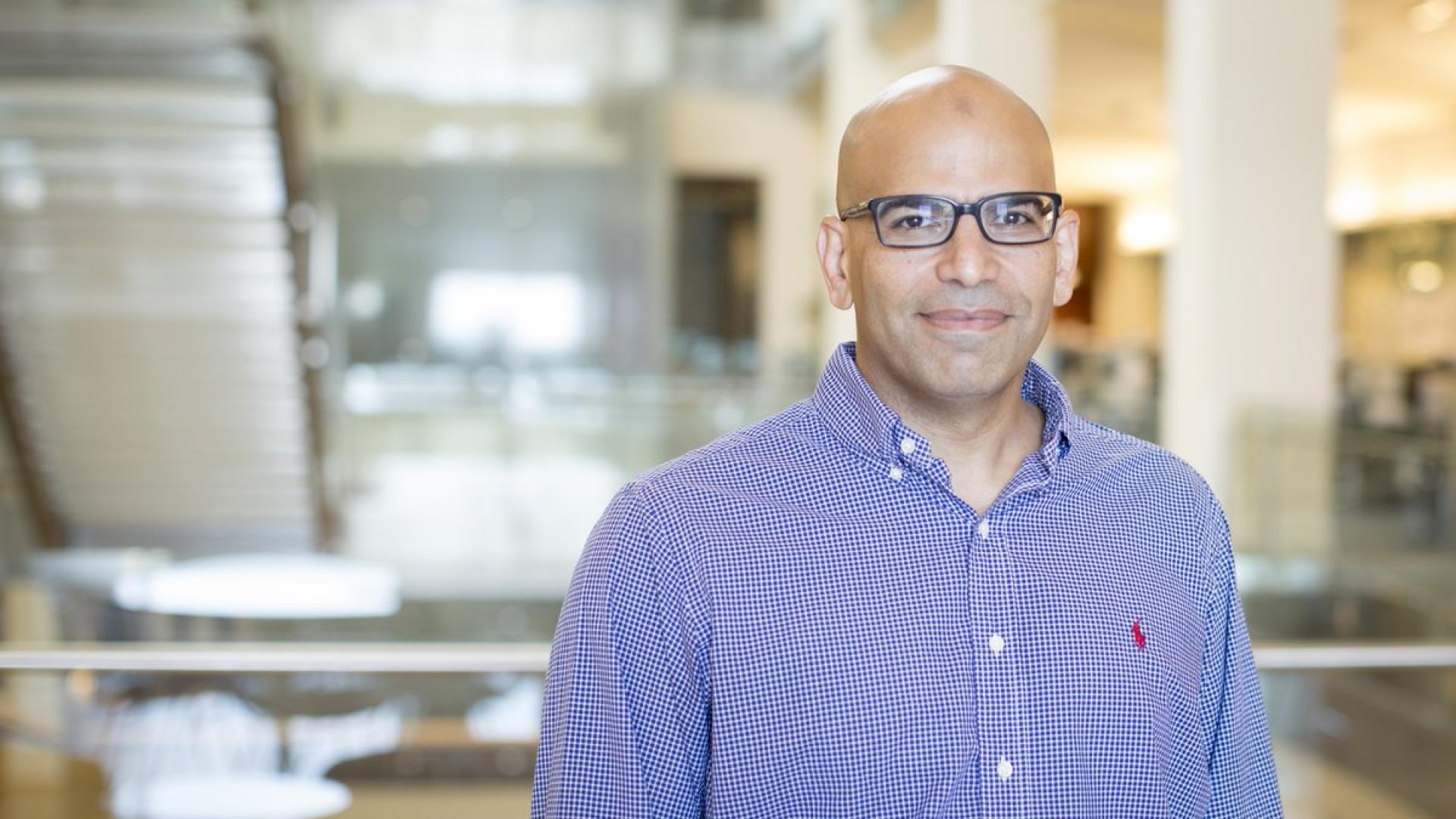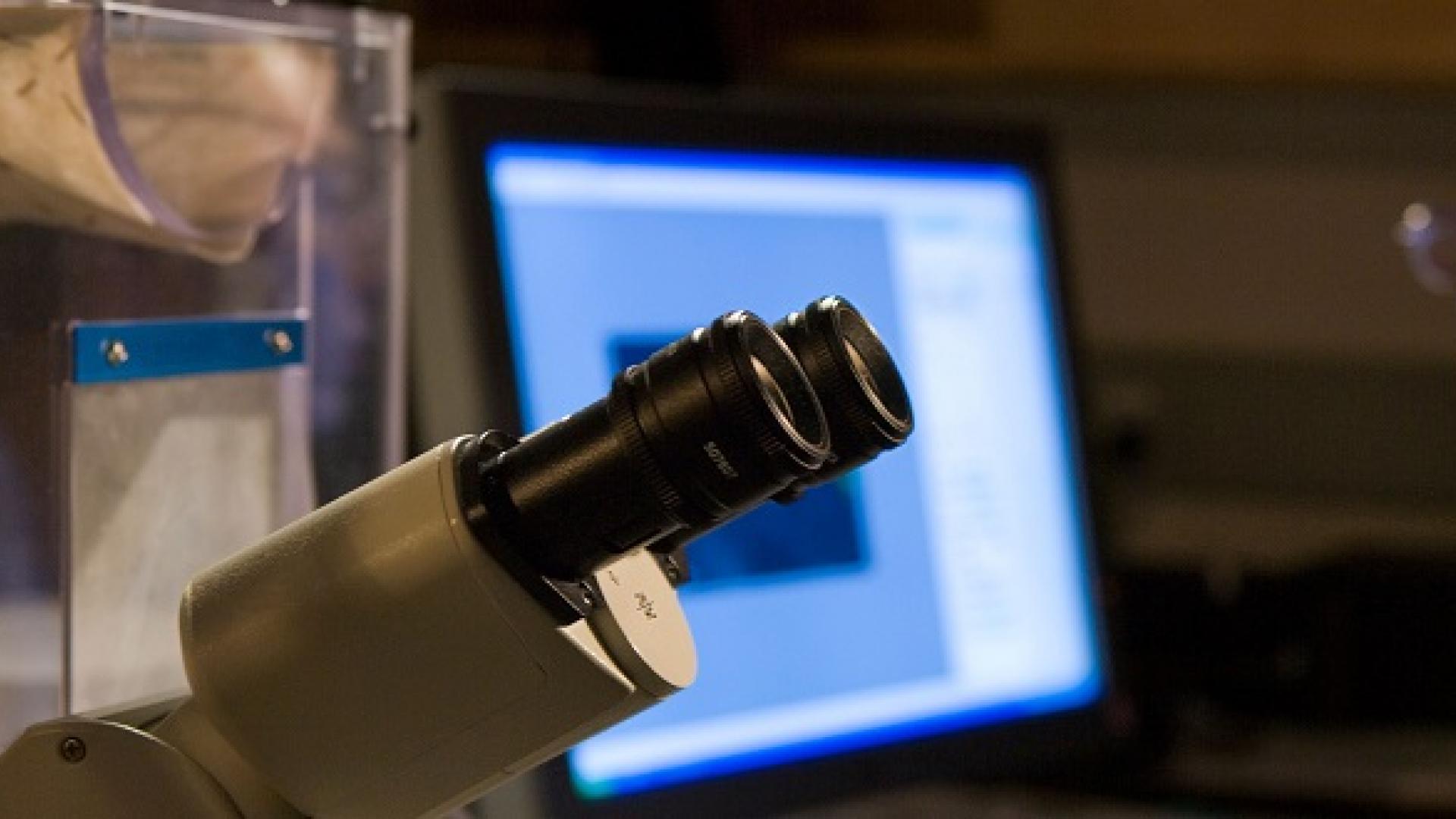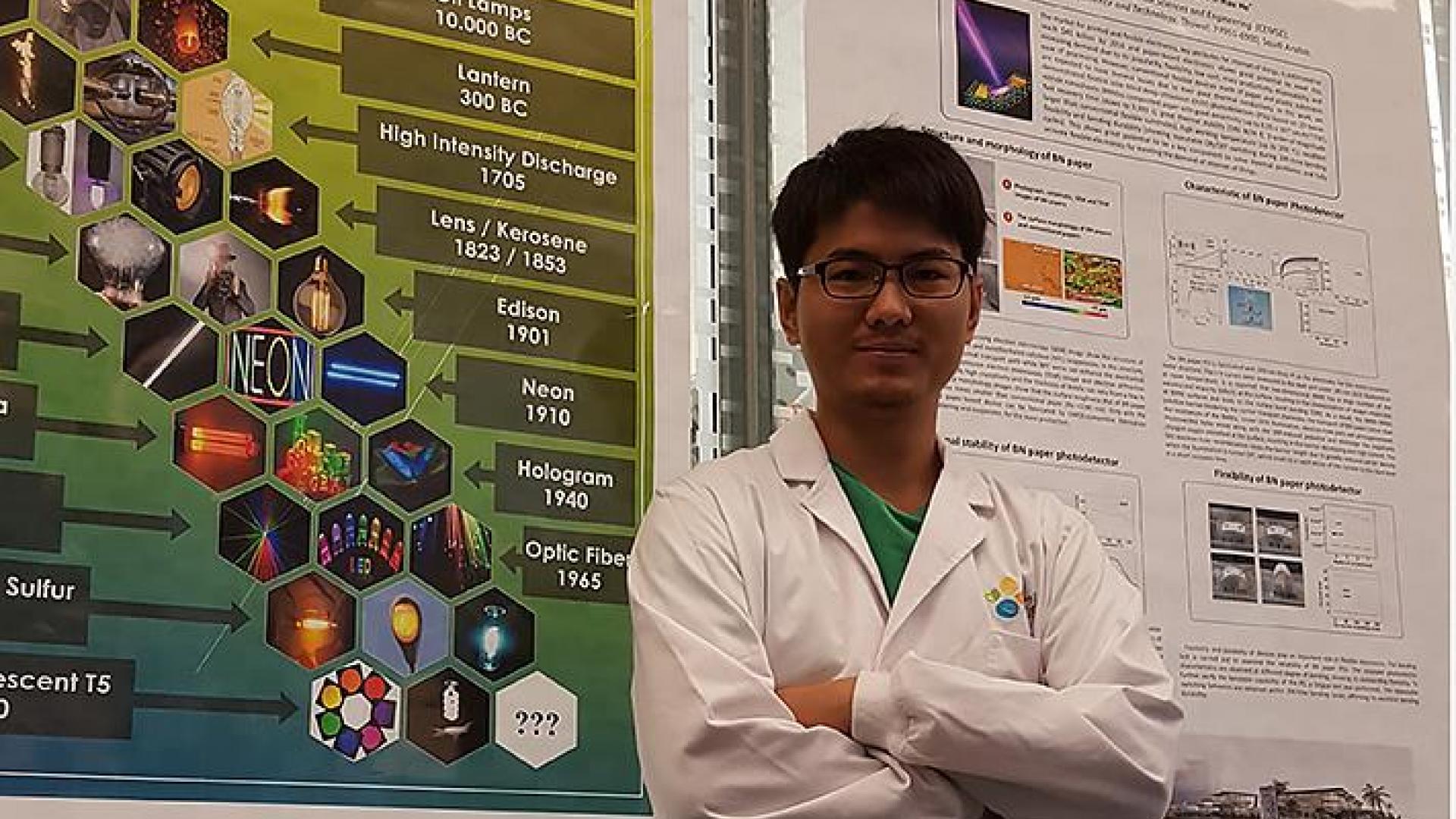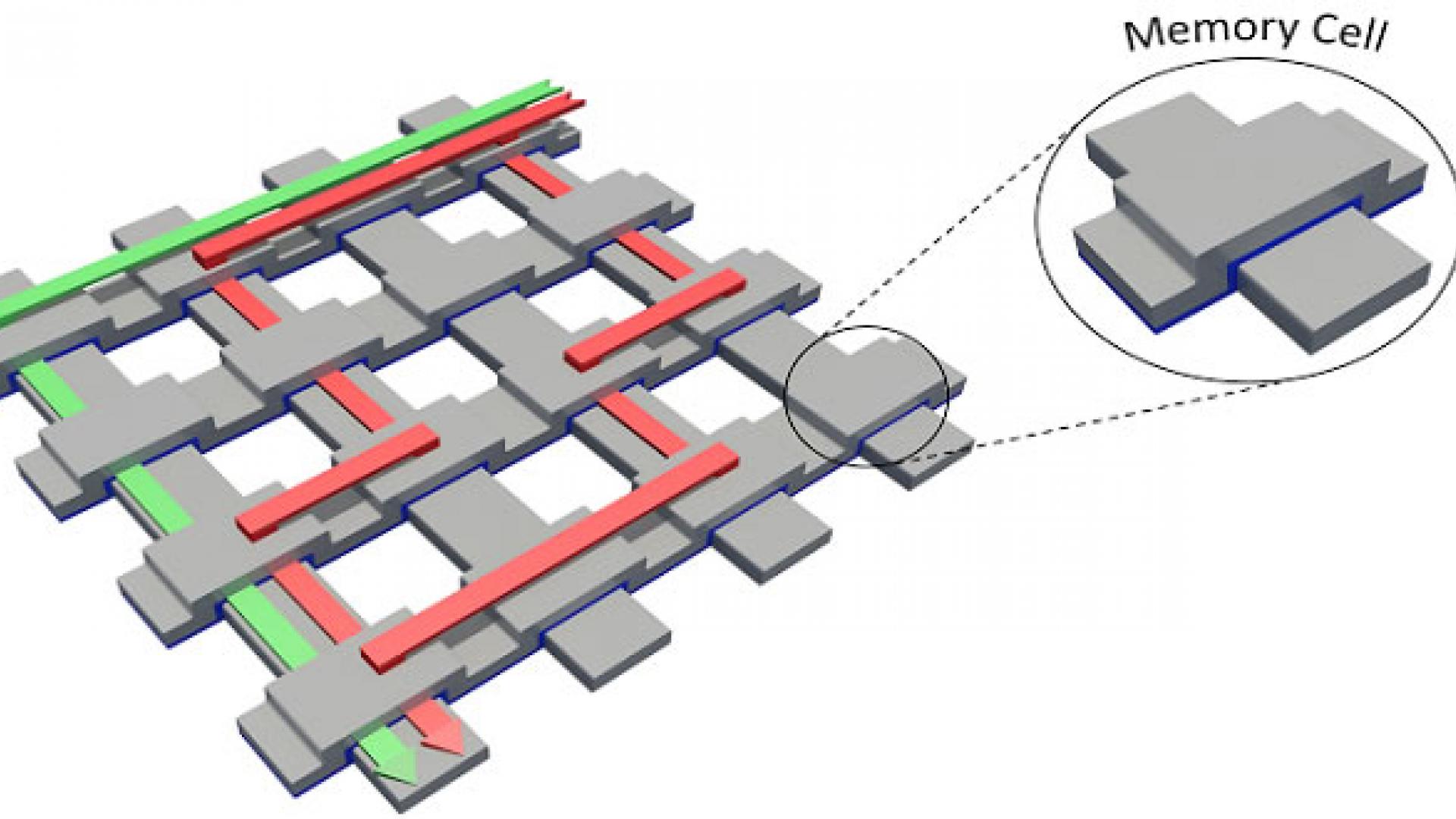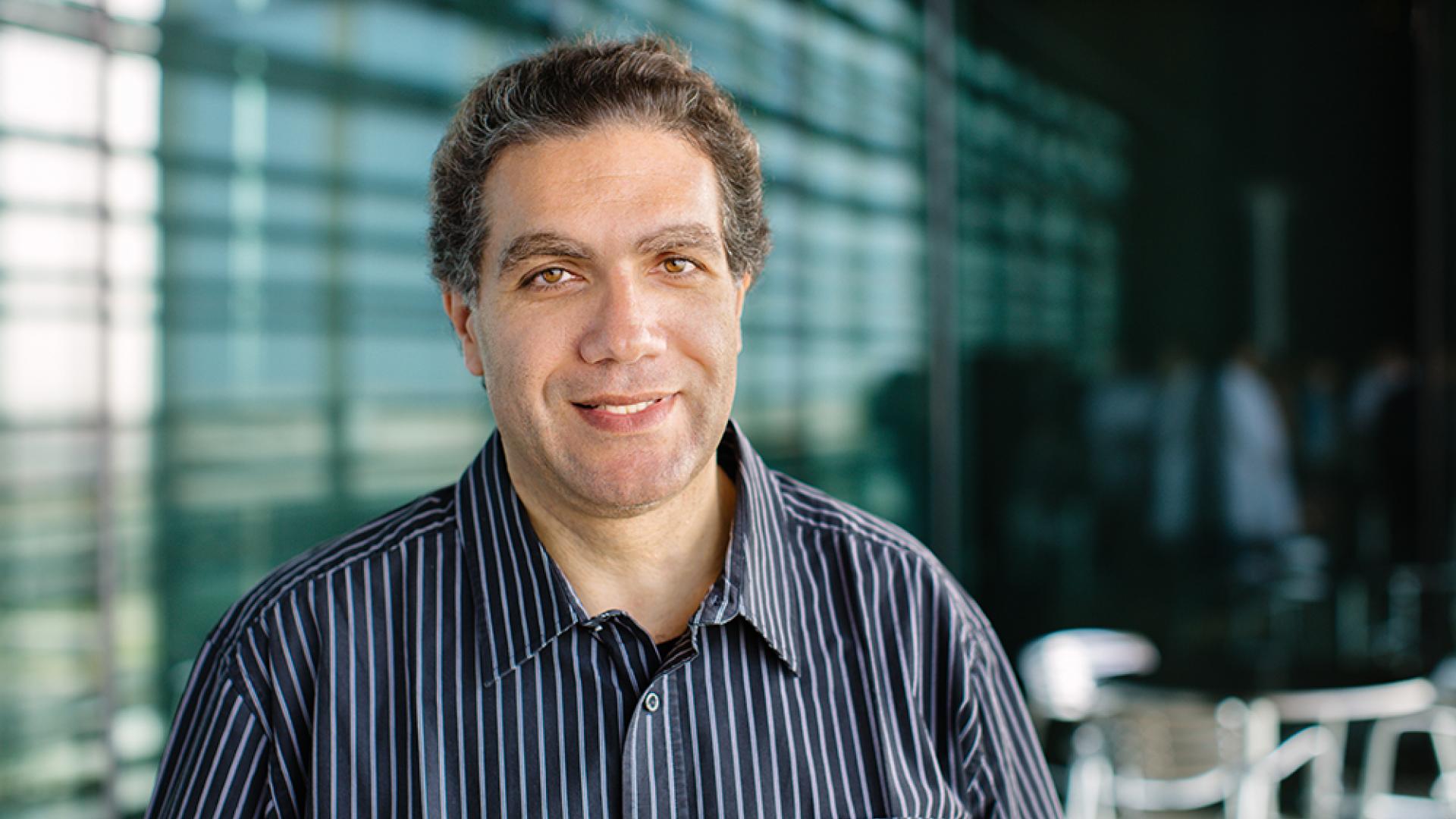An international, multidisciplinary collaboration that led to the world’s first underwater robotic avatar.
A team from the King Abdullah University of Science and Technology (KAUST) competed in the inaugural Mohamed Bin Zayed International Robotics Challenge (MBZIRC), held in Abu Dhabi, UAE, March 2017, and took a 3rd place finish in the ground robotics challenge.
An efficient wireless signal optimization scheme achieves peak performance for next-generation mobile communications.
In 2015, an extensive archaeological programme led by the French Ministry of Culture and the University of Montpellier set up a scientific collaboration with Khaled Nabil Salama, Professor from CEMSE Division and co-worker Professor Christian R. Voolstra, from the KAUST Red Sea Research Center, in partnership with Stanford University and Meka Robotics, in California, to develop Ocean One, an agile avatar that affords immediate and haptic-visual interaction â the process of recognizing objects through touch - in the ocean environment at depths greater than 50m.
"KAUST is a unique place!" said Rawan. "The university has an interdisciplinary environment that offers great opportunities both at academic and social level. Working at KAUST has made possible improving my professional skills while raising a family, a mission impossible for most women out there."
Professor Shamim's new cutting edge, flexible and low-cost technology to monitor chronic wounds recently put CEMSE on the map of health care system research. His scientific paper " Low-Cost Inkjet Printed Smart Bandage for Wireless Monitoring of Chronic Wounds " appeared on Nature Scientific Reports and won IEEE MECAP'16 - Middle East Conference on Antennas and Propagation - Best Paper Award, in Beirut, last September.
From DNA sequencing to environment monitoring, microfluidics devices have been broadly employed, but their production is more and more time-consuming and expensive. Researchers from the King Abdullah University of Science and Technology (KAUST), Saudi Arabia, have developed an innovative prototyping method for Lab on a Chip (LOC) production to plummet costs while augmenting performances.
In August 2016, Prof. Salama's article "Stochasticity Modeling in Memristors", was for the sixth time consecutively among the most downloaded paper of the month and the most read article in the IEEE Transactions on Nanotechnology (TNANO).
The award is an international distinction given to scientists for their contributions in the fields of interest of IFAC under the form of technical publications, patents, control solutions, products, software, and leadership in research, development, and education.
Adjusting the cooking time is all it takes to tune the magnetic properties of these multi-functional iron nanowires.
CEMSE student Chun-Ho Lin won the Best Paper Award at the 2nd International Symposium on Devices and Application of Two-dimensional Materials (2016), held in Shanghai on June 20, 2016.
Automated learning of an individual’s movement patterns shared over mobile and social networks could help us to connect better.
With the latest project on Digital Chaos Systems, KAUST's Associate Professor of Electrical Engineering Khaled Salama and the Sensors-Lab's team (http://sensors.kaust.edu.sa/research/current/digital-chaos-systems) secured stunning achievements and three key patents, opening new frontiers for cybersecurity, cryptography, and electronic devices.
A data readout scheme achieves an unprecedented reduction in power consumption for a promising high-performance resistive memory architecture.
Patent application US 20140239446 A1 on "Fractal Structures For Fixed MEMS Capacitors" was awarded a USA patent.
